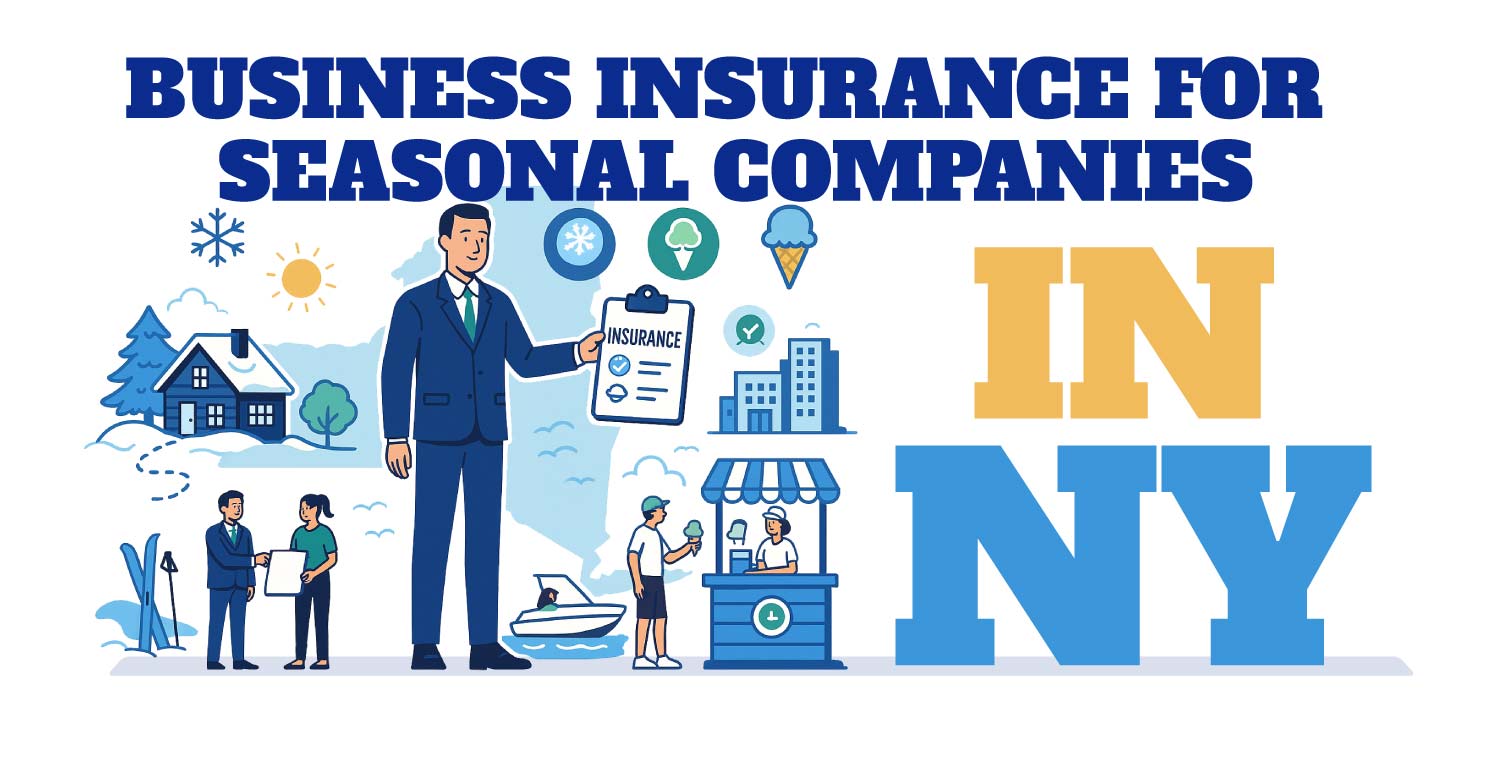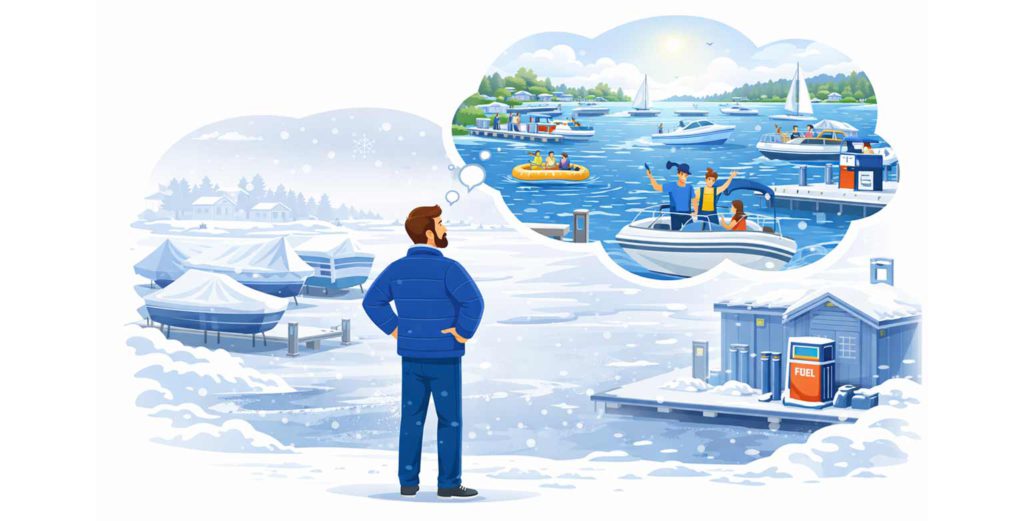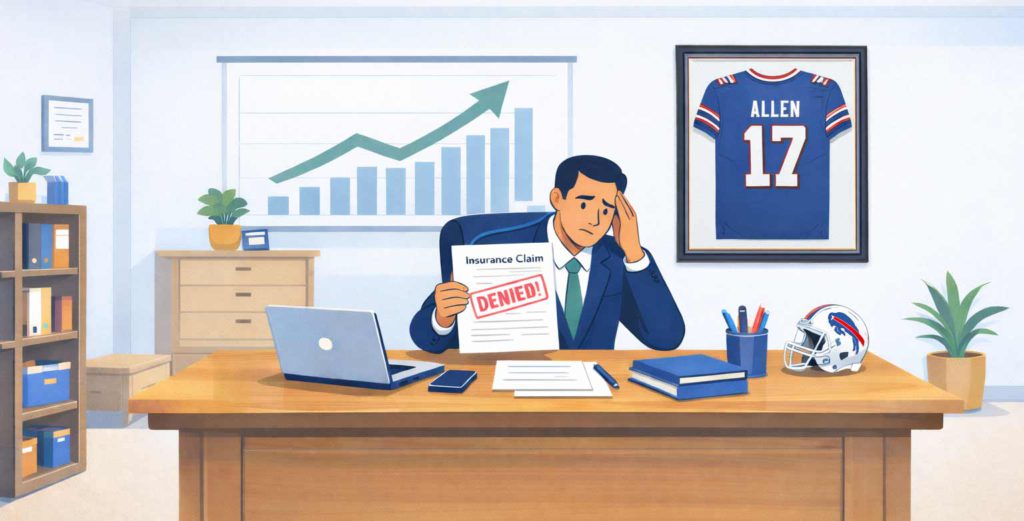Running a seasonal business in New York comes with a unique set of challenges. Whether you operate a ski lodge in Ellicottville, a boat rental service on Chautauqua Lake, or a summer-only ice cream stand in East Aurora, your operations likely shift with the weather and the calendar. And while your busiest months may only span part of the year, your risks and responsibilities don’t disappear when the doors close for the season.
At Weed Ross, we work with seasonal business owners across Upstate New York to ensure their insurance coverage is as flexible and reliable as their business model. As a local independent agency, we understand the pulse of the region—and we know how to protect your operation all year long.
In this article, we’ll cover:
- What qualifies as a seasonal business
- Key risks seasonal businesses face
- Must-have insurance coverages
- Strategies for managing insurance during off-season
- How Weed Ross can help you customize your policy
What Is a Seasonal Business?
A seasonal business is one that operates during a specific time of year due to weather, tourism cycles, or customer demand. These businesses may be open for just a few months or may scale operations dramatically during peak seasons. Common examples include:
- Winter sports resorts and ski equipment rentals
- Summer camps and lakeside marinas
- Farm stands and agricultural tours
- Landscaping and snow removal services
- Holiday stores and event-based vendors
While these businesses may differ in offerings, they share similar challenges when it comes to managing costs, protecting assets, and ensuring continuity from year to year.
Insurance Risks Unique to Seasonal Businesses
Even if you’re not operating year-round, the risks to your business persist. Seasonal businesses face:
- Property damage during the off-seasonP: Vacant buildings or idle equipment can be vulnerable to theft, vandalism, or storm damage.
- Weather-dependent income: If a rainy summer or mild winter cuts into your customer base, you could face financial shortfalls.
- Employee risks: Seasonal workers still require workers’ compensation, and you may face higher turnover or onboarding risks.
- Liability claims: Whether your business is open or closed, you could be held liable for injuries, accidents, or unsafe conditions on your property.
That’s why seasonal businesses need insurance that goes beyond basic coverage—it needs to account for downtime, asset protection, and operational flexibility.
Essential Coverage Options
Here are some of the most important types of insurance to consider if you operate a seasonal business in New York:
Commercial Property Insurance
Protects your buildings, equipment, signage, and inventory from risks like fire, theft, vandalism, and storm damage. This coverage should remain in place year-round, even when you’re not operating.
General Liability Insurance
Covers bodily injury or property damage claims from third parties. This is especially important for businesses with foot traffic or public-facing services, whether seasonal or not.
Business Interruption Insurance
Provides income replacement if your business is forced to close due to a covered event. Some policies may even cover delayed season starts due to weather or other disruptions.
Workers’ Compensation
Legally required in New York if you employ staff, even temporarily. It protects both you and your employees in case of workplace injuries.
Inland Marine Insurance
If you move equipment between locations (like landscaping tools or paddle boards), this coverage ensures those items are protected in transit.
Equipment Breakdown
Covers repair or replacement of critical equipment, such as freezers, lifts, or generators, in the event of mechanical failure.
Managing Insurance During the Off-Season
One of the biggest questions seasonal business owners face is: “Do I need to keep insurance during the off-season?”
The short answer is yes—but it depends on the type of coverage. For example, while you might scale back some coverages during the off-season, others are essential to keep year-round:
Property and liability coverage should remain active to protect against unexpected damage or claims while you’re closed. Business auto or equipment policies can sometimes be adjusted to reflect periods of non-use, potentially lowering premiums. Workers’ compensation can be paused or minimized when no employees are on payroll, but it’s crucial to reinstate before hiring again. At Weed Ross, we help our seasonal business clients customize their coverage timelines to keep costs low without exposing themselves to unnecessary risk.
Why Work with an Independent Insurance Agency
Unlike a national provider who only sells their own policies, Weed Ross is an independent insurance agency. That means we can compare rates and coverages from over 40 major carriers to get you the best deal. More importantly, we’re local. We know what it takes to protect a lakeside lodge through the winter or reopen a food stand in the spring. Our approach includes:
- Policy reviews before and after each season
- Adjusting coverage based on usage and staffing needs
- Helping you understand what coverage is required by law
- Advising on the best ways to reduce risk and claims
Keep Your Seasonal Business Protected Year-Round
Just because your business is seasonal doesn’t mean your insurance should be an afterthought. With the right coverage, you can protect your investments, your employees, and your livelihood—during your busiest season and while you’re on break.
If you’re running a seasonal business anywhere in Upstate New York, contact Weed Ross today for a custom insurance plan that fits your calendar, your budget, and your goals.




